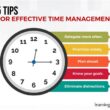Remote work has revolutionized the way we think about employment, offering flexibility and the chance to integrate work into our lives more seamlessly. If you’ve been dreaming of trading in your daily commute for the comfort of your own home office, then this guide is for you. “How to Land Your Dream Remote Job” is designed to help you navigate the increasingly popular remote job market. We’ll begin by helping you identify your ideal remote career, ensuring it aligns with your skills and passions. Next, we’ll dive into mastering the nuances of remote job interviews—highlighting how to present your best virtual self. The journey continues with strategies for negotiating your job offer, ensuring you get the terms—and pay—you deserve. Finally, we’ll share essential tips for transitioning into remote work, setting you up to thrive in your new role. Whether you’re a seasoned professional or just starting out, this blog post will lay the blueprint for landing the remote job you’ve always wanted.Learn to find your ideal remote job, ace interviews, negotiate effectively, and transition smoothly with our expert tips on remote career success.
Identifying Your Dream Remote Job

Embarking on the journey to finding remote job opportunities that align with your career ambitions and personal lifestyle can be an exhilarating experience. However, the process requires careful consideration and clarity on what constitutes your dream role. To navigate through an abundance of listings and identify that ideal position, it’s essential to reflect on the nature of work that brings you satisfaction, which skills you wish to utilize, and the type of company culture that resonates with you. Ensure that, as you sift through various job descriptions, you prioritize those that match these criteria, signaling a potential fit for your dream remote job.
Once you have a clear understanding of the job characteristics that pique your interest, you can implement remote job search strategies to tailor your search effectively. This specifically involves refining your approach to job boards and utilizing remote job networking tactics, such as connecting with professionals in your desired field via social media or virtual networking events. Crafting a targeted remote job resume and a persuasive remote job cover letter are also critical steps, as these documents are your first opportunity to demonstrate to potential employers why you are the perfect fit for their remote role. By focusing on these strategies and maintaining a commitment to remote job skills development, you maximize your chances of not just obtaining any remote position, but securing the remote employment of your dreams.
Mastering Remote Job Interviews

When embarking on a remote job search, one of the pivotal moments is mastering the interview process; it is an art that can significantly enhance your chances of securing remote employment. As you find yourself in the virtual room with prospective employers, it’s crucial to utilize remote job interview tips that go beyond the traditional in-person advice. For instance, demonstrating proficient digital communication skills is essential, as this is a clear indicator to employers of your capability to thrive in a remote environment. Crafting answers that showcase your ability to work autonomously, while also being a collaborative team player online, can make a striking impact on your potential employer.
In addition to technical competence, one must not underestimate the importance of remote job skills development prior to an interview. This is because effective remote roles often require a unique set of skills such as exceptional time management, self-discipline, and familiarity with various communication and project management tools. By presenting a well-prepared narrative of how your personal skill set aligns with the role’s requirements, you exhibit foresight and initiative—qualities highly valued in remote positions. Furthermore, within your resume and during the interview, offering concrete examples of past remote work experiences or situations where you excelled in a similar setup can provide tangible proof of your efficacy in a remote role. This strategic approach to the job interview is an integral step in securing the gateway to your ideal remote career path.
Negotiating Your Remote Job Offer

When you’re on the cusp of securing remote employment, navigating the final hurdle of negotiating your job offer can feel daunting, yet it’s a critical step in ensuring you receive a fair package that matches your worth and needs. It’s imperative to remember that the negotiation phase is your prime opportunity to align your expectations with the potential employer, covering not only salary but also other critical aspects such as flexible hours, additional training support for remote job skills development, or provisions for home office equipment.
To effectively approach this phase, arm yourself with specific remote job negotiation tactics that reflect your understanding of the remote work landscape. Be prepared to articulate your needs and expectations clearly, and don’t shy away from discussing your successful track record or the unique skills you bring to the table. Whether it’s your aptitude for self-management, your familiarity with digital communication tools, or your proactive approach to continued learning, these attributes can significantly buttress your position in a negotiation scenario. Moreover, delving into remote job application advice on how to present your case or expressing your enthusiasm to contribute to the team can go a long way in crafting a compelling argument for a better offer.
Transitioning to Remote Work Successfully

Transitioning to remote work can be an invigorating and life-changing decision, paving the way for greater flexibility and the freedom to design your own work-life balance; however, it requires strategic planning and a commitment to remote job skills development. To ensure a smooth transition, begin by setting up a dedicated workspace that encourages productivity and mirrors a professional office environment, equipping it with all the necessary technology and tools to efficiently perform your job duties.
To further solidify your transition, it’s important to nurture and expand your professional network by engaging in remote job networking tactics, which could greatly enhance your chances of securing remote employment; whether it’s connecting with industry leaders, participating in online forums related to your field, or joining virtual networking events, every interaction can be a stepping stone to a successful remote career. Remember, as you venture into the realm of remote work, continuous learning, and adaptability are your greatest allies, underscoring the need to stay updated with the latest trends and enhancing your skill set to remain competitive in this ever-evolving digital job market.
Frequently Asked Questions
What are the key elements to include in a resume when applying for a remote job?
A remote job resume should highlight your digital literacy, time management skills, self-discipline, accountability, and your ability to work independently. Include roles that demonstrate these skills and use specific examples of remote work you’ve done, if any. Additionally, mention your familiarity with common remote working tools like video conferencing, project management software, and communication platforms.
How can one stand out in a remote job interview?
To stand out in a remote job interview, be prepared to discuss your experience with remote work, how you handle distractions, prioritize tasks, and communicate effectively. Demonstrate your enthusiasm for the role and the company. Make sure your technology works well to avoid any connection issues during the interview. Also, convey your teamwork skills, even in a virtual environment.
What networking strategies are effective for finding remote job opportunities?
Effective networking strategies include joining professional groups or online communities related to your field, attending virtual webinars or conferences, and leveraging LinkedIn to connect with industry professionals. Don’t forget to let your current network know you’re seeking a remote position, as personal recommendations are incredibly valuable.
What is the importance of a cover letter for a remote job application?
A cover letter is crucial for a remote job application because it allows you to expand on your resume and directly address how your experience and skills make you an ideal fit for remote work. Use the cover letter to highlight your communication skills, time management, self-motivation, and any previous remote work experience.
How should one prepare for the transition from an office job to a remote job?
To prepare for the transition, set up a dedicated workspace free from distractions and ensure you have reliable technology and internet service. Work on developing strong self-discipline practices, fine-tune your time management skills, and create a routine to stay organized and productive. Also, learn to use and troubleshoot remote working tools before starting the job.
What are some common misconceptions about remote work that applicants should be aware of?
Common misconceptions about remote work include the idea that remote job opportunities are only for tech-related positions, that remote workers have less disciplined work structures, or that it’s easier than office work. Applicants should realize remote jobs require equal professionalism, the roles vary widely across industries, and one must be self-motivated and well-organized to succeed.
Can you provide tips on maintaining work-life balance when working remotely?
To maintain work-life balance, set clear boundaries for your work hours and stick to them. Take regular breaks and make time for physical activity. Create a separate workspace and, if possible, physically shut the door at the end of the workday to help mentally transition out of work mode. Prioritize communication with friends and family, and ensure you dedicate time for relaxation and hobbies.








